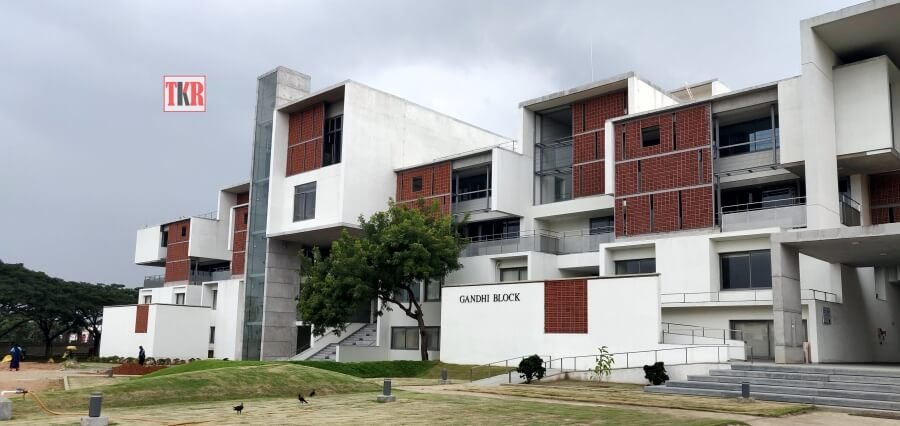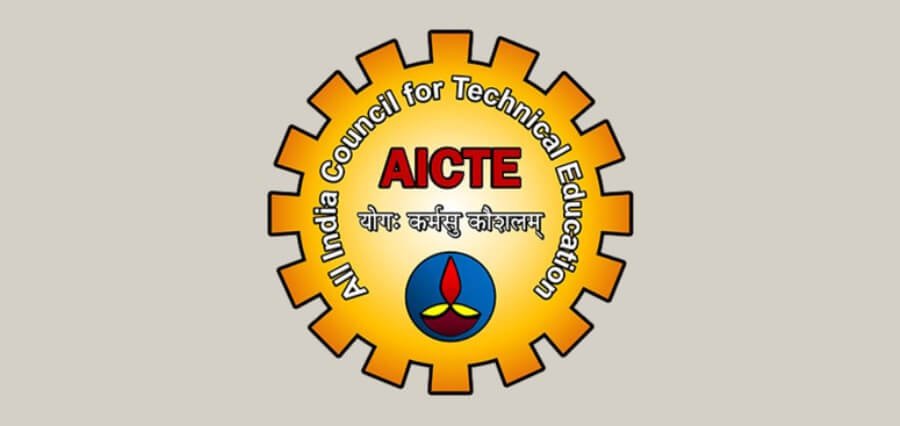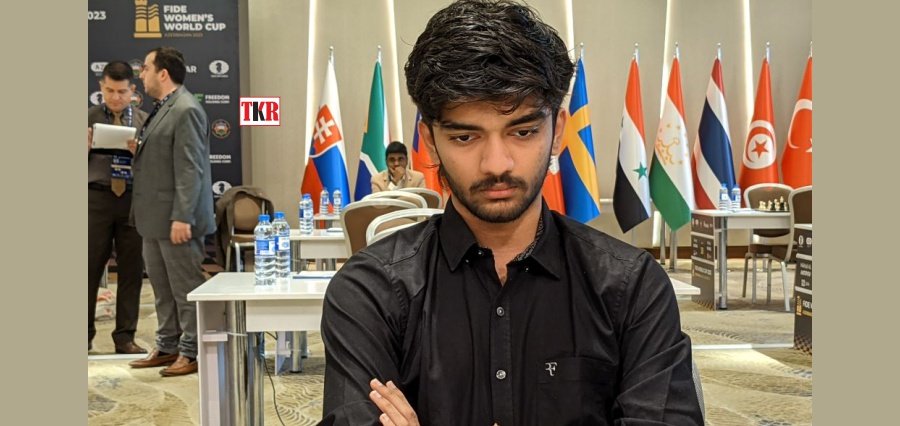The origins of contemporary architecture and architectural education in India may be traced back around 200 years to the country’s colonization. The Technical Schools created by the colonial administration in the 1850s paved the way for modern architecture education. They replaced the previous system of master artisans who passed down their skills from generation to generation. Different from Europe, where industrialization gradually modified old skills and knowledge systems, no attempt was made in India to transform traditional building techniques, which were instead purposefully bypassed by colonial builders.
Currently, the country is on the verge of becoming the hub for architecture education with its many good-quality educational institutes.
The School of Architecture (VSPARC) in Vellore Institute of Technology was initiated to provide a transformative learning environment in design-build innovation, emphasising interdisciplinary and creative learning to catalyse the revolution of architecture education in India. The aim of the programme is to elevate the value of design by integrating technology, humanities, and arts. The intent is to create a critically reflective learning environment that prepares industry-ready professionals for diverse careers. The architecture pedagogy strives to achieve the best solutions by teaching new skills for life-long learning that meets the tremendous demands of ever-changing societal needs, with a particular emphasis on experiential learning studio, along with intense research techniques which provide a solid intellectual base of knowledge, fostering intellectual curiosity, environmental awareness, and community engagement services.
Building Equitable Society
The institute is on a mission to be seen as an institution that fosters and helps build a just, equitable, and inclusive society resolving economic challenges through intelligent and responsible thought processes.
It is also aiming to create a vibrant, self-aware, and confident student community capable of independent thinking and analysis and setting targets for achievement borne out of deep self-respect.
V-SPARC School of Architecture strives to be a Centre of Excellence in Architectural Planning, Education, and Research focused towards evolving Socially Sensitive Individuals equipped with design, technology process, and realization skills to contribute responsibly to the changing needs of the natural and built environment.
V-SPARC has identified the following core values as guiding principles that act as an integral part of its research, teaching, and practice for the built environment:
- Integrity and Ethics
- Student Centric
- Respect for All
- Rewarding Co-creations
- Cutting edge Research
- An innovation ecosystem
A Source of Inspiration
Dr G. Viswanathan, the Chancellor of VIT University, was born on December 8, 1938, in a remote village near Vellore in Tamil Nadu. Dr GV’s life is a source of inspiration to aspiring youth. He excelled in academics right from his childhood. His pre-university education at Voorhees College, Vellore, initiated him to the world outside.
From there, he moved on to obtain his Bachelor’s and Masters’s Degrees in Economics from the prestigious Loyola College, Chennai. Following this, he graduated in Law from Madras Law College. He completed Advanced Management Program at Harvard Business School in 2003, nearly four decades after his University education, reaffirming his fervour for being an eternal student.
On May 15th, 2023, Chancellor has been felicitated with a Lifetime Achievement Award for his contribution to international education. The World Tamil Organization (UK) presented the award in the House of Commons of the British Parliament in London.
In addition, he has also been bestowed with the Jeevan Gaurav Puraskar – Lifetime Award for remaining an inspiring teacher throughout and for Teaching, Research, and Institution Building by the National Teachers’ Congress and MIT World Peace University, Pune. The award ceremony took place at the 3rd Global National Teachers’ Congress held at MIT World Peace University, Kothrud, Pune, in the month of January 2023.
Flexible Credit System
The programme’s most distinct and unique feature is a fully flexible credit system. The department has committed faculty who specialise in a range of interrelated disciplines and conduct transformative teaching in their respective field of interest. The programme offers unique opportunities for the students to explore topics across a range of national priority subject boundaries. This includes subjects like energy conservation, ecological architecture, protection and preservation of architectural heritage, rural communities, etc. which help students to consolidate their knowledge by synthesizing ideas.
A Brand Hard to Replicate
The school is housed within Gandhi Block, designed by Ar. Sanjay Mohe, Founding partner of Mindspace, Bengaluru. Recently, this living building was certified as a Platinum Rated Green Building by the Indian Green Building Council (IGBC). The open-style studio with a stimulating environment helps the students to create, think, build and develop their identities as creative and sensitive designers.
The school maintains a 1:10 studentfaculty ratio to ensure better care and attention. The design studio has a high visual and material character, and all the walls of the design studio are completely filled with sketches, posters, magazine clips, architects’ works, physical models, etc., which acts as a breakthrough for conceptualizing ideas.
The school is housed in a separate building of its own with robust infrastructural facilities. Opening a line of sight into adjacent spaces (between classes) creates a sense of connectedness, making learning communal, visible and valuable. Spacious and interactive spaces encourage more collaborative activities, which allows us to observe and celebrate students’ work. This hybrid studio provides an ideal environment for the reviews, discussions and discourse that are so central to design teaching and learning. Apart from seminar halls, auditorium, computer labs, library, and galleria, the other facilities include:
- Digital Infrastructure
- Laser Technology in Model making
- 3D Printing Technology
- Environmental Lab
- Experiential and Participatory Learning
- Major Collaborations
- Research Culture at the Grass-Root Level
- Special Initiatives for Advanced Learners
- Students’ Support and Progression
- Construction Yard
Establishing a unique position for the school was the biggest challenge in a world of increasingly global competition. Through its carefully designed academic curriculum, pedagogy, and research focus, VSPARC strives to enhance its distinctiveness and set a benchmark in academic and research endeavours. With the stakeholders’ active participation, the school can make some definite progress in overcoming this challenge.
Complete Education
Extracurricular activities are a crucial part of the educational system, and these activities often complete the educational process by complementing textbook education:
Heritage Connect
To have a public discourse on architecture students’ work, the school believes the best and novel way to disseminate the ideas and talents of young minds is to create awareness in students and the public about the importance of heritage and familiarize them with the current work practices in industries towards sustainable development.
Art Festival
Art Festival is an annual event organized by the school. It brings artists from across the country to Vellore to promote interest in art forms among students, teachers, and the general public at large. It organizes workshops which encompass several genres, including ceramics, sculpture, printmaking, watercolour, and oil painting. Glimpses of samples are displayed here.
International Conferences
V-SPARC has organized two International Conferences, CIAT and VALUE 2020 helped all students and faculty to access more knowledge and recent developments and trends in the field of architecture.
Express60 – is an interesting game-like competition where our students showcase their skills and express their creative talents.
Value Added Programs are credit-based programs where the students have intense theoretical and hands-on training to improve their skill sets.
Milestones to Cherish Forever
- International Collaborative design studio brings diverse perspectives and a deeper understanding of real-world scenarios.
- Scopus Indexed publication at UG level
- Alumni studying in prominent Institute of Higher Education and placement in Top Notch organizations
- Professional membership with the Association of Collegiate Schools of Architecture, USA
- International student exchange design programmes with National and International Universities
Message to Future Architects
“Architecture is a creative profession, and it is very important to know that the built environment can affect the way everyone lives. The school truly believes that architecture can influence people’s lives in various ways. The construction sector in India influences 22 per cent of India’s total CO2 emissions, and a responsible architect has the opportunity to incorporate living materials to reduce or mitigate the negative impacts upon the environment through their design,” says the management.
They continue, “Architects play a vital role in societal development where each architect has to focus in creating human-centric development which can bring effective positive change in the quality of people’s lives.”
Future Goals
In the future, the school will strive to achieve greater heights in teaching and learning through a world-class curriculum, deep-rooted in the spirit and essence of its heritage and culture, and to rank itself in its own capacity as a premier institution at par with the best schools in Asia Pacific region in the next five years.
It will also try to promote a world-class architectural education to achieve global recognition in 10 years, accomplishing leadership in Sustainable Design, Architectural Innovation and Emergent Technologies.
Read More: Click Here





